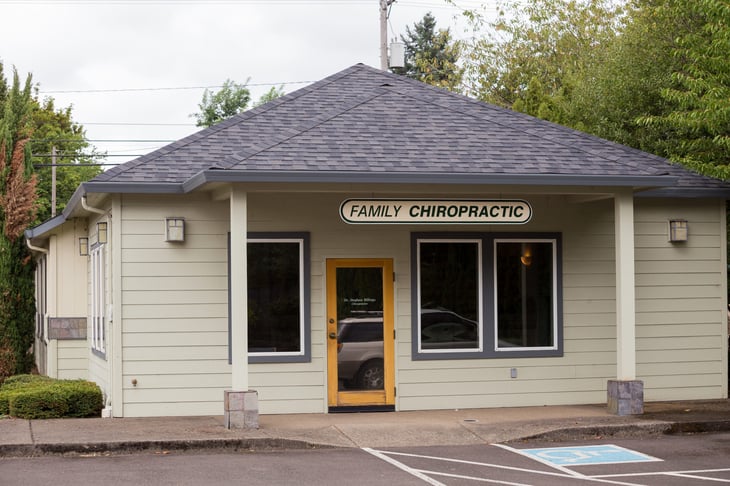
Turning 65 brings access to senior discounts galore, but there is no benefit of senior citizenship quite like Medicare.
The federal program extends subsidized health insurance primarily to folks age 65 and older. But while Medicare coverage comes with numerous freebies, it is hardly free.
Medicare beneficiaries pay into the system via taxes withheld from their pay during their working years. Additionally, Medicare coverage is not all-inclusive: Beneficiaries must cover all or part of certain medical expenses.
If you are on Medicare, you already know that — perhaps painfully well. But the costs associated with coverage can come as a surprise to folks who have yet to sign up for Medicare.
So, here’s a look at some of the most expensive, most common and most surprising health care costs that Medicare does not cover.
Costs with Original Medicare vs. Medicare Advantage

When talking about Medicare benefits, it’s important to note that your out-of-pocket costs will vary depending on your coverage type. There are two main types of Medicare:
- Original Medicare (aka traditional Medicare), which is offered directly by the federal government’s Medicare program
- Medicare Advantage plans (aka Medicare Part C plans), which are offered by private insurers that are approved by the Medicare program
Medicare Advantage plans must cover all the same services that Original Medicare covers. Some Medicare Advantage plans cover other expenses too.
So as you read on, remember that some of the following costs may not apply with certain Medicare Advantage plans.
1. Care you receive outside the U.S.

For many, retirement is a perfect time to see the world. Just be sure you first understand what your insurance will and won’t cover when you travel.
With a few limited exceptions, Original Medicare does not pay for health care that you receive while traveling outside of the United States or its territories. Medicare prescription drug plans — which are supplemental plans that people with Original Medicare can opt to buy — don’t cover prescriptions you buy outside of the U.S. either.
How to lower your costs: If you have Original Medicare, you have the option to buy a supplemental Medicare health insurance plan, also known as a Medigap plan, from a private insurer. Depending on the specific plan, it might cover any care you receive while traveling abroad.
Another option is to buy travel insurance that includes coverage for health care.
2. Premiums

You might be surprised to learn that even federally subsidized health insurance can have premiums, but that is the case with Medicare.
For 2023, the monthly premium for Part B — the component of Medicare plans that primarily covers services you receive outside of a hospital — is $164.90 or more, depending on your income. Usually, this premium is deducted from your Social Security benefits check.
Seniors with Medicare Advantage may pay a premium for their plan in addition to the Part B premium.
One bit of good news: A vast majority of seniors do not pay a premium for Medicare Part A, which covers inpatient hospital services.
How to lower your costs: The Part B premiums are fixed for those with Original Medicare. There’s nothing you can do about them.
If you have Medicare Advantage, you may be able to find a premium-free plan. The Centers for Medicare and Medicaid Services report that 57% of Medicare Advantage plans will not charge any premium in 2023. However, experts advise caution before signing up for a plan simply because it doesn’t charge a premium. Make sure your preferred providers are part of the plan network and doublecheck copayment requirements which can be higher on plans that don’t have premiums.
3. Long-term care

Long-term care refers to medical and nonmedical services for people who are unable to perform basic daily tasks like dressing or bathing on their own. You may receive long-term care in your home, in the community or at an assisted living facility or nursing home.
Like most health insurance plans, Medicare generally does not cover long-term care costs, which are notoriously high.
The national median cost of long-term care ranges from $1,690 per month for adult day health care to $9,034 per month for a private room at a nursing home, as we report in “11 Huge Retirement Costs That Are Often Overlooked.”
How to lower your costs: Start by considering long-term care insurance. For help determining whether it would be a smart buy for you, check out Money Talks News founder Stacy Johnson’s advice in “Should I Buy Long-Term Care Insurance?”
4. Dental care

Some Medicare Advantage plans cover some dental services. It depends on the specifics of the plan.
Original Medicare does not cover most dental care, procedures or supplies — including:
- Cleanings
- Fillings
- Tooth extractions
- Dentures
- Dental plates
- Other dental devices
There are some exceptions. For example, Original Medicare covers certain dental services that you get while in a hospital. But aside from these exceptions, seniors on Original Medicare plans are stuck paying for 100% of their dental expenses.
How to lower your costs: Check out “10 Ways Seniors Can Save on Dental Care.”
5. Hearing aids

Some Medicare Advantage plans pay for hearing aids, but Original Medicare doesn’t cover them. So if you have Original Medicare, you are responsible for 100% of the cost of hearing aids themselves and exams to fit hearing aids.
Original Medicare generally does cover 80% of the Medicare-approved cost of diagnostic hearing exams — meaning those that a health care provider orders to determine whether you need medical treatment. The patient or the patient’s Medigap plan pays the other 20%, after any deductible.
How to lower your costs: Check out “How to Save Money on Hearing Aids With Medicare.”
6. Routine vision care

Some Medicare Advantage plans cover some vision-related expenses, but Original Medicare typically does not cover eyeglasses or contact lenses or exams for eyeglasses or contacts. So 100% of those costs is on you.
Original Medicare does cover eye exams for patients with diabetes. It also covers tests for glaucoma in some situations. It even covers artificial eyes that your doctor orders. So a senior on Original Medicare is responsible for only 20% of such expenses, after a deductible.
How to lower your costs: Check out “Medicare Vision Coverage: How to Save Money on Eyeglasses and Exams.”
7. Routine foot care

Original Medicare typically does not cover routine foot care, which includes:
- Cutting or removing corns and calluses
- Trimming, clipping or cutting toenails
- Hygienic maintenance or other preventive maintenance, such as cleaning and soaking the feet
For some diabetics, though, Medicare Part B does cover 80% of the cost of some foot exams and medically necessary foot treatments by podiatrists, after any deductible.
How to lower your costs: If you have Original Medicare, a supplemental Medigap plan might be your best bet. Seniors have few options when it comes to saving on routine foot care, as it’s not among the extra benefits that Medicare Advantage plans commonly offer.
8. Chiropractic care

If you happen to have vertebral subluxation — which is when spinal joints don’t move properly but the contact between joints remains intact — Medicare Part B will cover 80% of the cost of manual spinal manipulations by a chiropractor, after any deductible.
If you need to see a chiropractor for any other reason, however, you’re probably out of luck. Original Medicare doesn’t cover any other services performed or tests ordered by chiropractors — with one exception noted in the next item on this list.
How to lower your costs: If you have Original Medicare, a supplemental Medigap plan might be your best bet. Seniors have few options when it comes to saving on chiropractic care, as it’s not among the extra benefits that Medicare Advantage plans commonly offer.
9. Acupuncture

Original Medicare does not cover acupuncture costs, with only one exception.
If you have chronic lower back pain, Part B will cover 80% of the cost for a limited number of acupuncture treatments within a limited time window — with the maximum being 20 acupuncture sessions in a 12-month period — after any deductible.
How to lower your costs: Consider whether a Medicare Advantage plan would be better for you than Original Medicare. An analysis by the Kaiser Family Foundation found that 36% of Medicare Advantage plans for 2023 offered some acupuncture coverage.
10. Massage therapy

While Original Medicare will cover a limited number of acupuncture sessions in one situation, it won’t cover any massage therapy sessions in any situation: 100% of the cost is on the patient every time.
How to lower your costs: Therapeutic massage is probably the hardest service on this list to get at a discount, but the Kaiser Family Foundation says there may be Medicare Advantage plans out there that help cover therapeutic massage.
